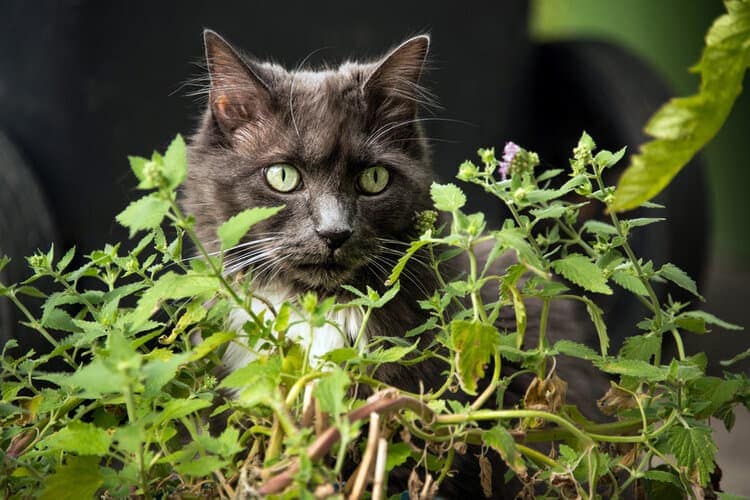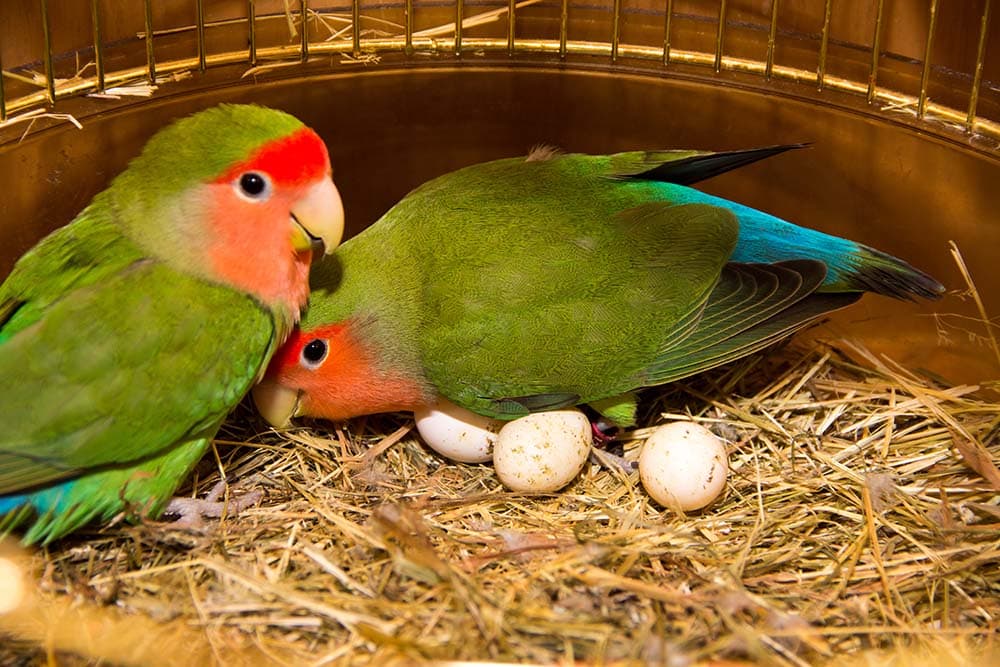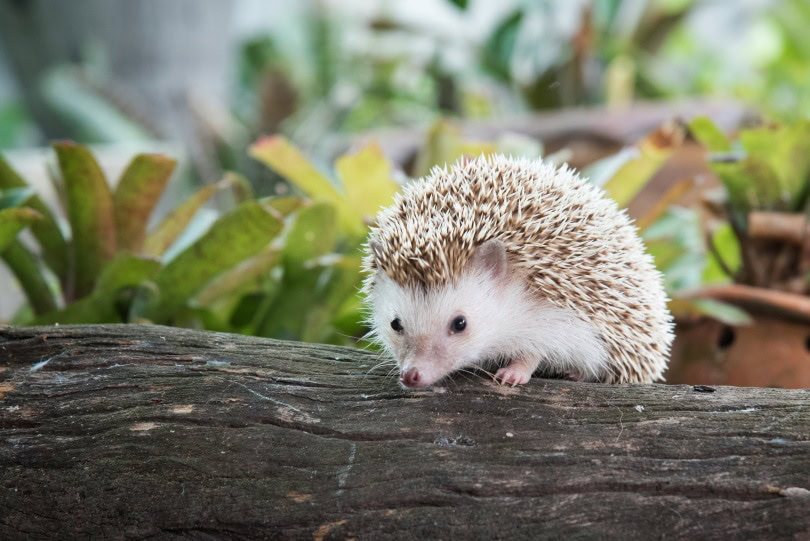VET APPROVED

The information is current and up-to-date in accordance with the latest veterinarian research.
Learn more »Cats may be masters at hiding their feelings, but if they’re stressed, you’ll probably notice some changes in their behavior. Drooling, crying, peeing inappropriately, and hiding are common signs that your cat is anxious or afraid. If you’re looking for a natural way to help relieve your cat’s signs, calming scents are a possible option. Here are seven scents that can help cats calm down and some precautions to keep in mind when using them.

The 7 Scents to Help Cats Calm Down
1. Cat Pheromones
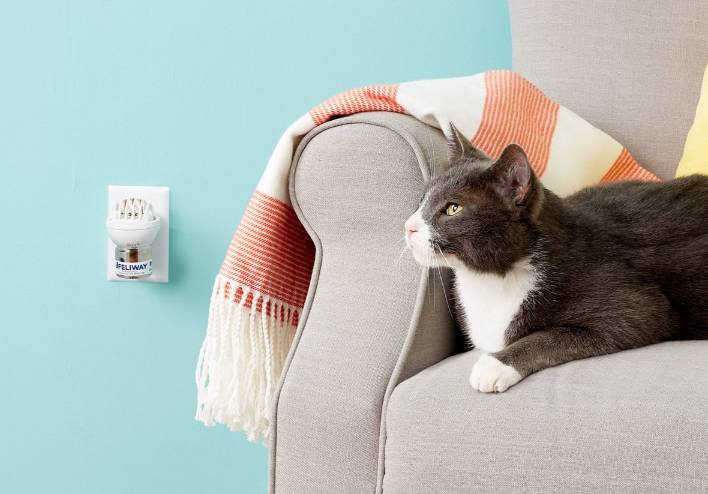
Pheromones are scents released by glands on your cat’s body. They are very important for communication with other cats but they also act as a message for themselves. Synthetic pheromones like Feliway aim to produce reassuring ‘happy’ messages for your cat using the pheromones associated with comfort and safety. Feliway comes in diffusers and a spray. The pheromones are specific to cats and will have no effect on humans or other pets.
2. You!
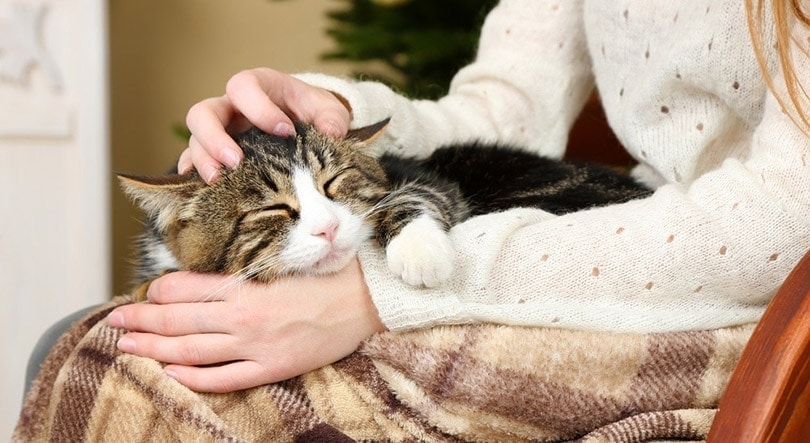
Research indicates that your unique scent may calm your cat1. Most cats form secure attachments to their owners, like dogs and even human children. When stressed, this bond helps your cat feel calmed by your presence.
Interestingly, the same study reported mixed results regarding items (such as clothing) that belonged to the beloved human. If you leave your shirt, with your cat while you’re out of town, it may or may not have a calming effect.
3. Catnip
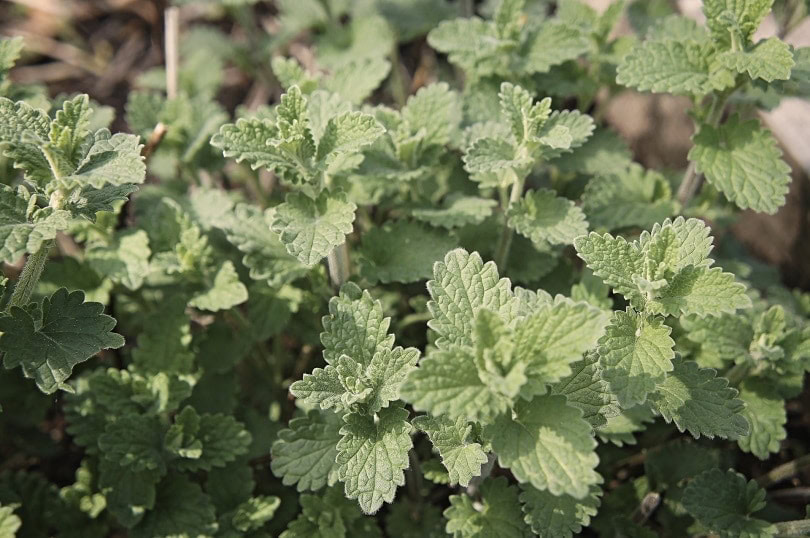
This scent isn’t the most reliable way to calm a cat down because not every kitty will react to catnip. Most cats become overly excited by this herb, but others can exhibit a sleepy, sedate reaction. The effects of catnip on cats are temporary and usually last about 30 minutes. However, many cats enter a state of calm after they experience the excited phase and sit quite still until the effects fully wear off.
4. Chamomile

If you like to enjoy a cup of chamomile tea before bed, you’re already aware of the soothing properties of the herb. The scent of chamomile may also have a calming effect on your cat. Chamomile impacts the brain similarly to prescription anti-anxiety drugs, lowering stress levels and promoting relaxation. Your kitty probably won’t be interested in a hot cup of tea, but smelling the dried chamomile herb may have the same effect.
5. Valerian

Valerian root is often used as a substitute for catnip because it produces a similar response. If your cat is “immune” to catnip, there’s a chance that valerian could do the trick. One study that compared catnip with three other scents, including valerian, found that about 50% of kitties responded to valerian.
The scent of valerian usually produces an initial excitement phase, followed by a significant mellowing out phase. This herb typically makes cats even sleepier than using catnip.
6. Frankincense

This scent comes from a tree found in India and Africa. Frankincense is used as an herbal remedy for many conditions and to boost overall health. The smell is believed to create feelings of relaxation and peace in many species, including cats. It may be especially useful in helping cats deal with changes in routine. Because frankincense is usually formulated as an essential oil, you’ll need to check with a vet to determine the safest way to expose your cat to this scent.
7. Copaiba

Another scent that may calm cats down is copaiba, extracted from the sap of a tree that grows in Central and South America. It is thought to have a soothing effect on the nervous system in many species, including cats.
The smell can be relaxing and helps calm anxiety, decrease stress, lower tension, and increase a sense of well-being. Since it’s available as an essential oil, ask your veterinarian about the safest way to allow your cat to experience the calming smell of copaiba.

Essential Oils and Cats
Essential oils can be dangerous to cats, even scents that are technically considered safe. Diffusing essential oils into the air may seem like the logical way to allow your cat to smell them, but it also presents several dangers. Inhaling the diffused oil may cause breathing issues in cats. In addition, the diffused droplets may settle on the cat’s fur and be ingested during grooming. Always speak to your vet before using essential oils around your cat.


Summary
You know your cat best. If your cat’s behavior changes and you are worried they may be stressed, get them checked out by your veterinarian first to rule out any health issues. Synthetic pheromones such as Feliway are a safe option to help calm them, but before using other scents talk to your veterinarian. Depending on the source of your cat’s anxiety other measures or treatments are likely to be needed in combination with a calming scent.
Featured Image Credit: Georgia Evans, Shutterstock
